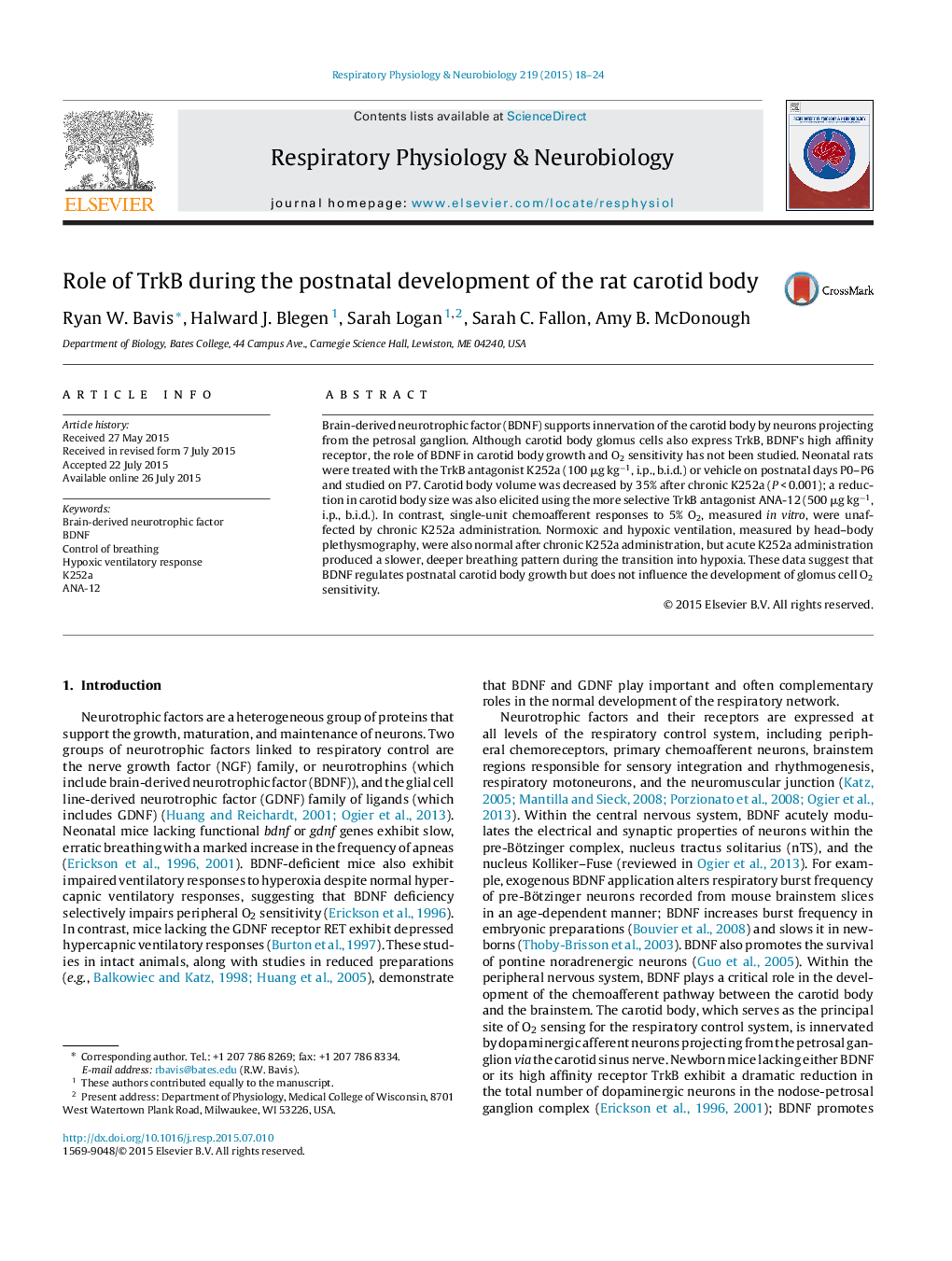| Article ID | Journal | Published Year | Pages | File Type |
|---|---|---|---|---|
| 2846783 | Respiratory Physiology & Neurobiology | 2015 | 7 Pages |
Abstract
Brain-derived neurotrophic factor (BDNF) supports innervation of the carotid body by neurons projecting from the petrosal ganglion. Although carotid body glomus cells also express TrkB, BDNF's high affinity receptor, the role of BDNF in carotid body growth and O2 sensitivity has not been studied. Neonatal rats were treated with the TrkB antagonist K252a (100 μg kgâ1, i.p., b.i.d.) or vehicle on postnatal days P0-P6 and studied on P7. Carotid body volume was decreased by 35% after chronic K252a (P < 0.001); a reduction in carotid body size was also elicited using the more selective TrkB antagonist ANA-12 (500 μg kgâ1, i.p., b.i.d.). In contrast, single-unit chemoafferent responses to 5% O2, measured in vitro, were unaffected by chronic K252a administration. Normoxic and hypoxic ventilation, measured by head-body plethysmography, were also normal after chronic K252a administration, but acute K252a administration produced a slower, deeper breathing pattern during the transition into hypoxia. These data suggest that BDNF regulates postnatal carotid body growth but does not influence the development of glomus cell O2 sensitivity.
Related Topics
Life Sciences
Biochemistry, Genetics and Molecular Biology
Physiology
Authors
Ryan W. Bavis, Halward J. Blegen, Sarah Logan, Sarah C. Fallon, Amy B. McDonough,
